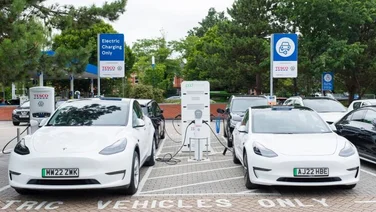72% of UK drivers plan to cut emissions by using their car less in the aftermath of the COVID-19 lockdown.
This change in attitudes, which was measured by insurance provider By Miles, could reduce the amount of greenhouse gases emitted in the UK by millions of tonnes.
Road vehicles are responsible for 118 million tonnes of CO2e* per year, according to the Office for National Statistics – 27% of the country’s emissions total.
*a measurement that converts all greenhouse emissions into CO2 terms
Lockdown changes landscape
In the 14 weeks after the start of the COVID-19 lockdown, the number of vehicles on the road dropped to 52.56% of its usual level, according to the Department for Transport.
That brief but sizable decline reduced emissions by 15.18 million tonnes – and if it encouraged drivers to make a long-term reduction, the savings could be even bigger.
If the 72% of drivers who intend to drive less cut their time on the road by just 20%, they would slash the annual emissions total by 16.99 million tonnes.
And as you can see above, any larger reductions would result in a huge shift.
Drive less to save the most
Road vehicle emissions are the best way that an individual can reduce their carbon footprint, according to recent scientific research reported by BBC News.
Just a small decline in road vehicle usage can result in a large drop in CO2e emissions.
And if you need to drive, the same research indicates that using an electric car is the second-best way to shrink your carbon footprint.
It’s also cost-effective, as the government’s Electric Vehicle Homecharge Scheme can currently save you £350 on the cost of a new home charging station.
Plus, it costs three times less to run an electric car than the average petrol car, according to our research.
James Blackham, co-founder of By Miles, said the government needed to do more to encourage people to cut down on driving.
“We need to make it even easier for people to make changes that will save the planet, and incentivise them to do it,” he said.
“It’s clear that people want to take positive action, but with little guidance coming from a government taking little responsibility, the burden has fallen on the shoulders of the public.
“This isn’t fair.”






